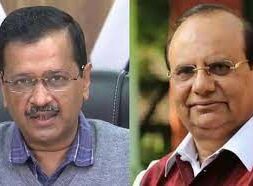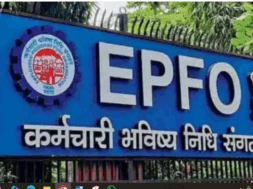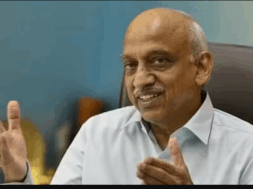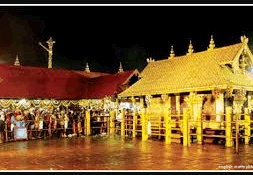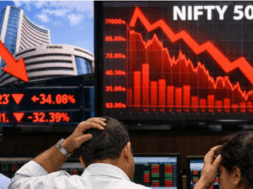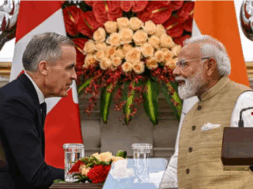
Manas Dasgupta
NEW DELHI, May 11: Virtually asking the Central government to take its hands off the Delhi government though its Lieutenant Governor, the Supreme Court on Thursday ruled that the Arvind Kejriwal-led Aam Aadmi Party regime had powers to make laws and wield control over bureaucrats deputed to the Delhi government departments and the LG would have powers only on the public order, police and lands.
Ruling in favour of the elected government, the apex court ruled that the Delhi government must have control over services and that the Lieutenant Governor was bound by its decision.
The Delhi assembly is given powers to legislate to represent the will of the people, a Constitution Bench of the Supreme Court said in a unanimous verdict. In a democratic form of governance, the real power of administration must rest on the elected arm of government, said the bench, adding that the central government’s power in matters in which both the Centre and states can legislate “is limited to ensure that the governance is not taken over by the Central government”.
Disagreeing that the Delhi government had no power over services, the judges said only Public Order, Police and Land are excluded from its jurisdiction. While declaring that civil service officers are “politically-neutral professionals” who serve the people and not political parties, the court said the Delhi government required to have administrative control over its officers to deliver the goods.
“A constitutionally entrenched and democratically elected government needs to have control over its administration. The administration comprises of several public officers, who are posted in the services of a particular government, irrespective of whether or not that government was involved in their recruitment,” Chief Justice of India DY Chandrachud, who wrote the 104-page judgment, debunked the Centre’s argument that it retained “administrative control” over officers deputed to the Delhi government.
Within hours of the landmark judgement by the Supreme Court, the Delhi government removed Services secretary Ashish More. Later Delhi Chief Minister Arvind Kejriwal, addressing a press conference said his government had been battling issues for the last eight years and insisted that Delhi ties would see a massive administrative overhaul over the next few days.
The Supreme Court ruled that the Delhi government has legislative and executive powers over services except for public order, police and land. The Constitution Bench headed by Chief Justice of India D.Y. Chandrachud reiterated that the National Capital Territory of Delhi (NCTD) would not have power to legislate on public order, police and land in the national capital.
“The legislative and executive power of NCTD over Entry 41 shall not extend over to services related to public order, police, and land. However, legislative and executive power over services such as Indian Administrative Services or Joint Cadre services, which are relevant for the implementation of policies and vision of NCTD in terms of the day-to-day administration of the region, shall lie with NCTD. Officers may be serving in NCTD, even if they were not recruited by NCTD,” the Court laid down the law.
If a democratically elected government is not able to hold to account the officers posted in its service, then its responsibility towards the legislature as well as the public is diluted, Chief Justice Chandrachud reasoned.
The Court held that the Lieutenant Governor was, according to Article 239AA, bound by the aid and advice of the Council of Ministers of NCTD in relation to matters within the legislative scope of NCTD, which included all ‘services’ coming under Entry 41 of the State List of the Seventh Schedule of the Constitution except those related to public order, police and land. “To clarify, any reference to ‘Lieutenant Governor’ over services (excluding services related to ‘public order’, ‘police’ and ‘land’) in relevant Rules shall mean Lieutenant Governor acting on behalf of GNCTD,” the Court interpreted.
The Court noted that the efficacy of the State and the system of responsible government to a large part depend upon professionals, who embody the institution of a competent and independent civil service. The policies of the government are implemented not by the people, Parliament, the Cabinet, or even individual Ministers, but by civil service officers. Effectiveness of the services is to a large extent dependent upon the relationship between the Ministers and civil service officers, it said.
“Civil servants are required to be politically neutral. The day-to-day decisions of the Council of Ministers are to be implemented by a neutral civil service, under the administrative control of the Ministers. Civil service officers thus are accountable to the Ministers of the elected government, under whom they function. Ministers are in turn accountable to Parliament or, as the case may be, the State Legislatures,” the Chief Justice observed.
The Delhi government had approached the Supreme Court amidst a scenario in which civil service officers were pushing policy files directly to the Lieutenant Governor, considered an extension of the Centre, rather than consulting elected Ministers of the Delhi government.
The Supreme Court said a principle of “triple-chain of collective responsibility” existed in the governance of the capital. This three-cornered command included civil service officers being accountable to Ministers, who are in turn accountable to the Parliament/Legislature, which is ultimately answerable to the electorate.
“An unaccountable and a non-responsive civil service may pose a serious problem of governance in a democracy. It creates a possibility that the permanent executive, consisting of unelected civil service officers, who play a decisive role in the implementation of government policy, may act in ways that disregard the will of the electorate,” the Constitution Bench said. The bureaucrats have to come under the control of the Delhi government, otherwise its responsibility towards the legislature as well as the public is diluted.
“If the officers stop reporting to the ministers or do not abide by their directions, the principle of collective responsibility is affected,” Chandrachud said, reading out the order. “If a democratically elected government is not allowed to control its officers and hold them to account, then its responsibility towards legislature and the public is diluted. If an officer is not responding to the government, the collective responsibility is diluted. If an officer feels they are insulated from the elected government they feel they are not accountable,” said the Chief Justice.
“This is a historic victory for Delhi. We have been fighting for eight years. They (Centre) stalled all our work deliberately using their appointees. Both my hands were tied and I was pushed into the river, but I kept swimming, by grace of God,” said Kejriwal.
He announced that soon, there would be transfers to remove corrupt officers and bring in honest, hard-working officers. “Our work will now resume at 10 times the speed,” Kejriwal said, promising a “lean, thin, responsive, passionate and accountable” government.
Arvind Kejriwal has often complained that he could not so much as appoint a “peon” without the Centre’s say-so. He alleged that bureaucrats didn’t obey his government’s orders as their cadre-controlling authority was the Union Home Ministry.
The Delhi Government approached the court in 2018, arguing that its decisions were constantly overruled by the Lieutenant Governor, that appointments were cancelled, files not cleared, and basic decision-making was obstructed.
In 2019, when the Supreme Court considered various appeals, a two-judge bench gave a unanimous verdict but was split on the question of powers over services. On the Centre’s request, the case was then referred to the Constitution Bench. The Centre had earlier sought a hearing before a larger bench. The Chief Justice said the request should have been made at the beginning and had it been done, it would have looked at the matter differently.
In its opening remarks, the apex court said it does not agree with Justice Bhushan’s split judgment that Delhi government has no power at all over services. During the hearing, the bench had questioned the need for having an elected government in Delhi if it was not handed any power. It said this after the Centre asserted the Union Territories are an extension of the Union, which wants to administer them.
Soon after the SC verdict, the Delhi BJP president Virendra Sachdeva said the party respects the Supreme Court verdict that gave the AAP government legislative and executive powers over the administration of services, and claimed that a transfer-posting industry will come up in the city.
“We respect the Supreme Court verdict. Kejriwal has obtained what he was desperately looking for. He said there will be large-scale transfers of officers in his government which means that a transfer-posting industry will come up in Delhi,” Sachdeva said in a statement here.
Officers in the Delhi government will now be given postings based not on their capabilities but on how obedient they are to the chief minister, the BJP leader charged. Sachdeva also claimed that officers in the Delhi government will now be pressured to do the bidding of the Aam Aadmi Party. This is the reason why the ruling party in Delhi is claiming the Supreme Court verdict as its victory, he added.
